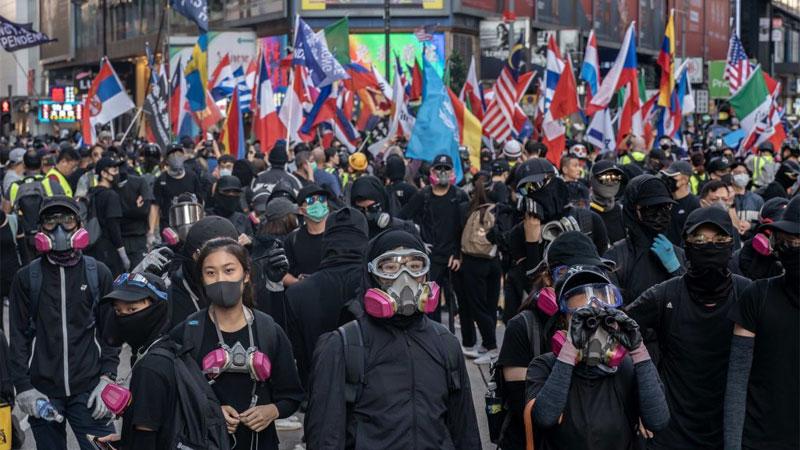
Ongoing civil unrest in Hong Kong is the biggest geopolitical threat to global markets, an economist told CNBC Thursday.
Speaking to CNBC’s ‘Street Signs Europe’, chief economist at Berenberg, Holger Schmieding said the worst-case scenario was ‘pretty clear’ after President Donald Trump signed two bills backing protesters in Hong Kong.
The move reignited tensions between Washington and Beijing, with China’s Ministry of Foreign Affairs accusing the US on Thursday of having “sinister intentions.”
“Hong Kong at the moment is the biggest geopolitical risk out there for markets,” Schmieding told CNBC.
“If the situation in Hong Kong escalates badly, if we get a Chinese heavy-handed military intervention, then it would be nearly impossible for the US to conclude a trade deal with China — even a stage one deal — it would be nearly impossible for the EU to do that, so that would prolong the global industrial downturn which is caused by trade tensions.”
The US and China have been negotiating a ‘phase one’ trade deal since October, which is to be a pathway to a more comprehensive agreement that would end the months-long trade war between the world’s two largest economies. Markets have experienced months of volatility amid mixed signals around tariff escalations and positive Sino-US trade talks.
Although Schmieding warned about the dangers of the situation in Hong Kong impacting the phase one deal, he said it was unlikely that the worst-case scenario would materialise.
“So far the behaviour of China in Hong Kong suggests that Beijing is clearly aware of the risk, and judging by events so far, Beijing still has the priority of safeguarding its own economy from the fallout of a prolonged trade war,” he explained.
“I do not think President Trump signing this bill really should have a significant effect,” Schmieding added. “We know the US and China, China and the Western world, are different when it comes to human rights, when it comes to democracy, and this difference will not go away — we just have to reassert that occasionally, and China knows probably it has to live with it. In my view, this is hopefully just a modest spat, nothing that will take China away from the big picture — safeguard its own economy by finding a deal with the US on trade.”
Anti-government protests have engulfed Hong Kong, a semi-autonomous territory that operates under Chinese rule, for several months. The demonstrations, which have turned violent and had an economic cost, have led to an increasing presence of Chinese troops in Hong Kong, according to Reuters.
Trump’s bills would require an annual certification of Hong Kong’s autonomy, and bar the sale of ammunition including tear gas and rubber bullets to Hong Kong police.
Speaking to CNBC’s ‘Squawk Box Asia’ on Thursday, Ben Emons of Medley Global Advisors said he didn’t believe the bills would affect US-China trade talks.
Meanwhile, some analysts have told CNBC they don’t see Chinese military intervention as a likely response from Beijing.
Power for Democracy’s Joseph Cheng told ‘Street Signs Asia’ last month that military intervention in Hong Kong would be “far too costly” for China. Meanwhile, an independent analyst, Fraser Howie told CNBC that military action would be “tremendously destructive to China” and “the end of Hong Kong as we know it.”
Hong Kong’s bechmark stock index, the Hang Seng Index is up more than 4% year-to-date.
